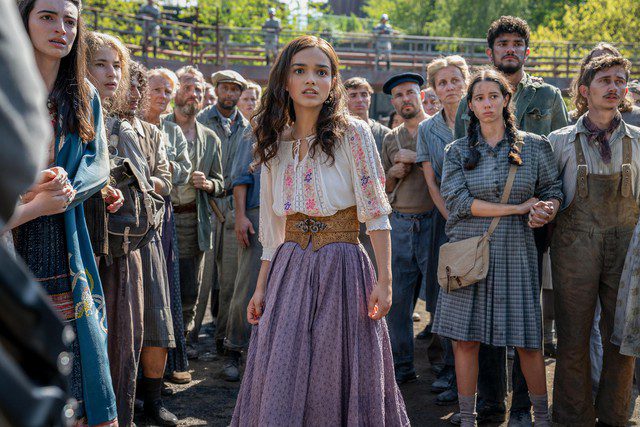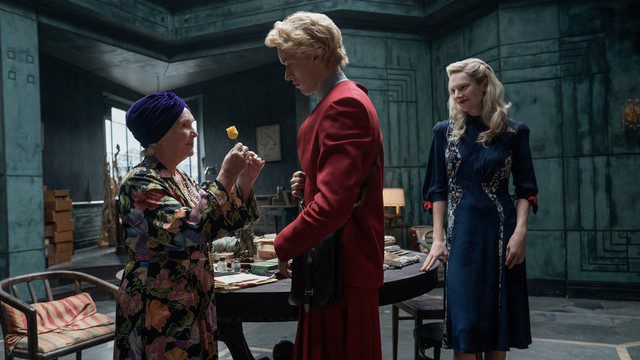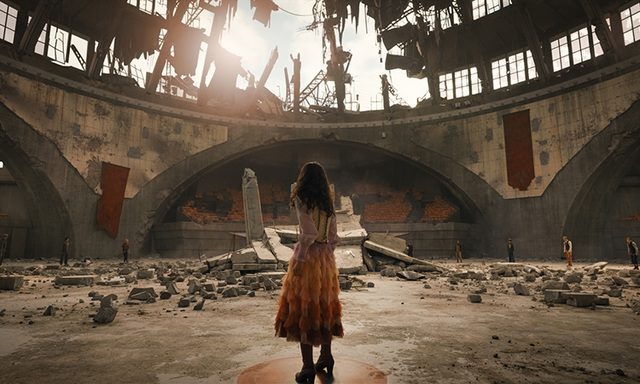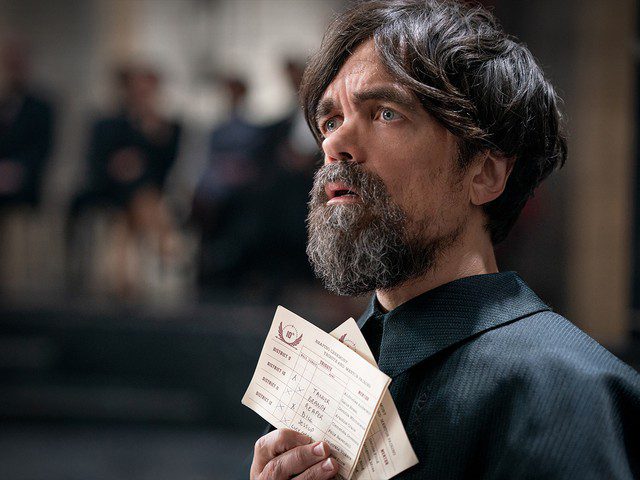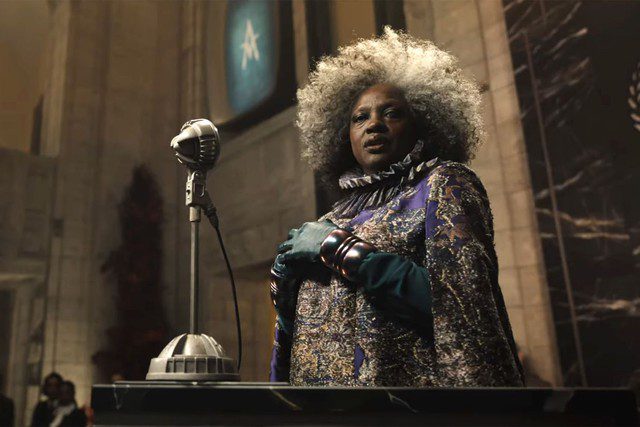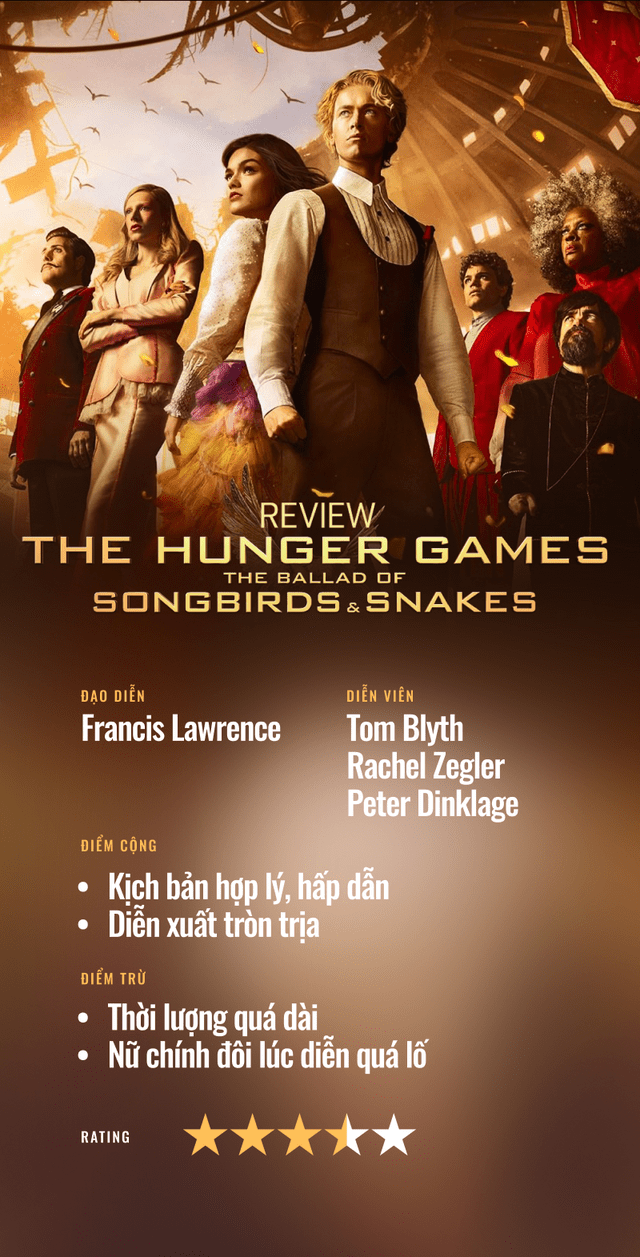Returning 11 years ago, when the first installment hit the screens, The Hunger Games rapidly became a cultural phenomenon with nearly $700 million in global revenue, simultaneously helping Jennifer Lawrence ascend to superstardom in Hollywood. Following the film series, the brand seemed to have concluded with its narrative revolving around the bloody survival games and profound existential philosophies.
In 2020, author Suzanne Collins continued the saga with the release of The Hunger Games: The Ballad of Songbirds & Snakes, expanding upon the stories set in the dystopian land of Panem and providing a clearer interpretation of the origins of the survival games. Hollywood studios did not miss the opportunity to create a prequel to The Hunger Games, which officially premiered on November 17.
The Dark Origins of the Most Notorious Villain in The Hunger Games
This installment centers around the character Coriolanus Snow (Tom Blyth), who later becomes President Snow – the main antagonist of the film franchise. The setting is a grim period of Panem after the war, and those in power are struggling to revive the districts through the brutal survival games.
Audiences are introduced to Coriolanus’ tragic backstory as the only son in a once-wealthy family from the Capitol. However, after his father’s passing, the family falls into poverty, struggling to survive while still attempting to maintain a facade of elegance. Determined to restore his family’s former glory, Coriolanus excels in school with hopes of securing a place in the games as a mentor.
Confident in his abilities as the brightest student, Coriolanus’ plans are thwarted when Casca Highbottom (Peter Dinklage), his mentor with a personal vendetta against his father, alters the rules, forcing him to work with the unlikeliest of tributes from District 12, Lucy Gray Baird (Rachel Zegler).
Throughout the intense journey, Coriolanus develops feelings for Lucy. From then on, he tries to balance his ambition with the need to protect her. However, the decisions he makes lead him down a path where youthful determination clashes with harsh realities.
For fans of The Hunger Games, the narrative about the dark past of the most notorious villain in the franchise is sure to bring many surprises. With compelling performances and deep emotions, Tom Blyth’s character is brought to life with vibrancy and depth. Audiences will feel his longing for a better life in a society rife with inequality and struggle. At times, you will also see him transform into a dangerous individual willing to exploit those he loves to achieve his goals.
Lengthy Yet Increasingly Captivating
With a runtime of 2 hours and 45 minutes, The Hunger Games: The Ballad of Songbirds & Snakes is the longest installment in the franchise to date. The film is divided into three distinct parts, seamlessly transitioning through time. The first two parts revolve around Coriolanus Snow’s origin and his journey to protect Lucy Gray Baird as they navigate the brutal survival games.
However, the final chapter focuses on his relationship with the rebellious girl from District 12. From there, the filmmakers also pose the question of why this seemingly innocent young man could become a cruel tyrant in the future.
The first two chapters of the film evoke memories of the original The Hunger Games with a story about a kind-hearted girl thrust into a bloody competition. However, the team behind The Hunger Games: The Ballad of Songbirds & Snakes finds it challenging to recreate the shock and emotion that audiences felt during the first installment, which introduced viewers to a vivid and blood-soaked dystopian world.
The highlight of the film lies in the final chapter, where the story breaks away from the familiar themes of The Hunger Games to explore the world beyond the districts. The romance between Coriolanus and Lucy feels raw, evoking emotions tied to the Gypsy culture that audiences rarely encounter except through literature.
Similar to previous works, the strong point of The Hunger Games: The Ballad of Songbirds & Snakes lies in the ideological weight of the source novel. Author Suzanne Collins continues to craft a compelling narrative about the dark origins of President Snow. The filmmakers have conveyed these themes in a visually striking manner that resonates for nearly three hours. This continuity could captivate those who are enthusiastic about the franchise while also challenging other viewers to remain engaged throughout the lengthy runtime, particularly during the slowest parts of the film.
Standout Performances Amidst the Dark Themes
Another bright point of The Hunger Games: The Ballad of Songbirds & Snakes comes from the performances of its actors. Tom Blyth delivers a compelling portrayal of Coriolanus Snow, effectively demonstrating the transformation of a seemingly innocent boy into a character with dark ambitions and complex emotions. His journey showcases the psychology of a character navigating through a world filled with challenges.
Supporting performances from veterans like Peter Dinklage and Viola Davis also shine in the film. The “King of the North” from Game of Thrones brings a captivating presence as Dean Casca Highbottom, delivering a brilliant performance of a character who is both intelligent and emotionally complex, although he often acts based on his feelings. Yet, this character is acutely aware of his shortcomings and the flaws of those around him, leading to a confrontation that could change the course of their lives.
Meanwhile, Oscar-winning actress Viola Davis embodies the character of Volumnia Gaul, a key figure in the creation of the survival games. This character is a cold-blooded manipulator, devoid of empathy, but committed to her ideals. She continuously sets challenges for Coriolanus with the hope of molding him into her envisioned successor, as they both pursue their ambitions within the blood-soaked games of Panem.
The unfortunate standout in The Hunger Games: The Ballad of Songbirds & Snakes is the lead actress Rachel Zegler, one of Hollywood’s brightest young stars today. Despite her compelling role that combines acting and singing, her portrayal of Lucy Gray Baird has received mixed reviews, with some noting it lacks the depth and emotion needed for such a complex character. However, her singing performance hints at her immense talent, although it occasionally feels overshadowed by her previous performance in West Side Story. This approach by Zegler seems somewhat disconnected from a film that has heavy philosophical themes and deep emotional currents like The Hunger Games: The Ballad of Songbirds & Snakes.
Rating: 3.5/5
Overall, The Hunger Games: The Ballad of Songbirds & Snakes is unlikely to disappoint fans of the franchise. With a solid narrative combined with powerful performances from the cast, the film successfully captures some of the most thrilling aspects of the dystopian world surrounding the survival games for its audience. However, if you’re a casual viewer, you might need a good amount of patience to sit through the lengthy runtime, especially during the slower sections of the film.



